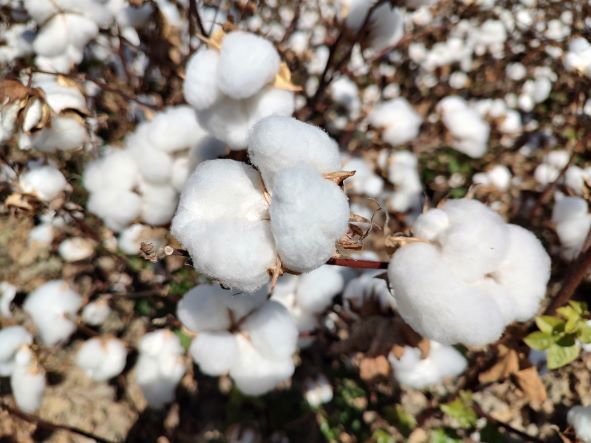The cotton market was very cheerful all week as 2023 crop futures shot up to 83.60 before the March settlement was tagged at 81.44.

Traders failed to pinpoint any specific fundamental news for the price rally. Most felt the week’s bullish movement was based on new speculative longs entering the market, coupled with two rounds of short covering – first above 81.40 and again once 82.40 was touched. Yet, a review of open interest data cannot confirm new positions.
It was noted the Southeast basis has sharply narrowed in the past week, an indication of good demand for that growth. Other growths have not noted the same strength. Further, there has not been any noticeable indication of any volume sales to China or any other major importer. Certainly, the weekly export sales report was a major disappointment. However, that report reflected week-old data.
The market did move higher than expected and reestablished the year-old 74-88 cent trading range. Nevertheless, most think the absolute high will be 85 cents with the possibility of another test of the mid-70s possible. The five-cent range of 77-82 cents is projected to be the principal trading range.
USDA’s December supply demand report caused the market to back off more than 100 points in Friday’s (Dec. 8) trading as it projected an increase in world ending stocks of some 900,000 bales, up to 82.4 million. The principal bearish tone in the report came in the form of a 1.6 million bale reduction in world consumption, now down to 113.73 million bales. Major demand reductions were noted in China (down 1.0 million bales), Turkey (down 400,000 bales), and Mexico and the U.S. (down 100,000 bales each). Demand remains the major deterrent to increasing cotton prices.
Further, it is noted that the Chinese, U.S., Australian, Japanese, Indian, and European economies continue to experience a reduced level of economic activity. It is thought that world consumption could fall another 300,000 to 400,000 bales lower.
World production was also reduced 500,000 bales, from 113.5 to 113 million bales. U.S. production was lowered 300,000 bales, down to 12.8 million. Turkish production was also lowered 300,000 bales, down to 3.2 million. Production in Pakistan was increased 200,000 bales, up to 6.7 million bales.
Carryover in major importing countries increased 600,000 bales, while major exporting countries saw an increase in carryover of 400,000 bales. These levels suggest very keen price competition will continue to haunt world cotton trade. The WASDE report, while reducing U.S. carryover to a very critical level, was viewed as slightly bearish due to the availability of cotton supplies chasing a market with declining demand.
Preliminary U.S. planted acreage estimates for 2024 range from 9.8 to 10.8 million acres. Certainly, growers with good yields in 2023 will plant up to or slightly more in 2024, with total plantings expected between 10.1 and 10.3 million acres.
The Global North Is Alienating the Global South Before COP28 Even Starts
Cotton Grower cotton market moved higher than expected reestablishing the year-old 74-88 cent trading range

